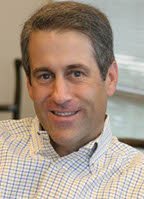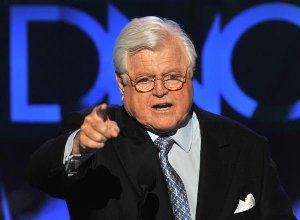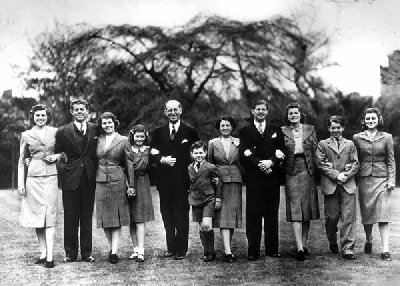Love your enemies, civility advocates say
WASHINGTON (RNS)—Mark DeMoss, to borrow a line from the U2 song, still hasn’t found what he’s looking for.
The veteran Christian public relations executive couldn’t find it last year when he advised Mitt Romney’s presidential campaign. It was missing again in the controversial battles over Proposition 8, the California measure that put an end to same-sex marriages last November. And he’s having a hard time finding it in the heat of the debates over health care reform.
“Civility isn’t ruling the day,” said DeMoss, who represents leading evangelicals like evangelist Franklin Graham and Prison Fellowship founder Chuck Colson.

Christian public relations veteran Mark DeMoss launched the Civility Project with Democratic strategist Lanny Davis after deflecting anti-Mormon rhetoric during Mitt Romney’s presidential campaign. (RNS PHOTO/ Courtesy of the DeMoss Group)
|
That’s why, just before Inauguration Day, DeMoss joined forces with Democratic consultant Lanny Davis to launch The Civility Project, an online forum that aims to help people who disagree be less disagreeable.
As people shout over each other at town hall meetings, with some resorting to name-calling and even defacing a Democratic congressman’s sign with a Nazi swastika, DeMoss and others say religious leaders can play a role in cooling down the ranting and rhetoric.
“Many Christians like to call ourselves followers of Christ,” said DeMoss, a Southern Baptist whose office is based in Atlanta. “I can’t be a follower of Christ if I’m shouting at you or interrupting your meeting, and I certainly don’t look like one when I do that.”
The principles on his site—to be civil in public discourse, respect those with whom you disagree, and stand against incivility—can be applied by people of faith in situations ranging from political discourse to personal relationships, he said.
The project mirrors a similar effort by Johns Hopkins University professor P.M. Forni that dates back a decade. DeMoss lists Forni’s books as useful resources on the project’s website.
Brad Hirschfield, president of the New York-based National Jewish Center for Learning and Leadership, said faith leaders can use the wisdom of their particular traditions to nurture compassion and human dignity in the midst of the continuing debate.
“The first question when things start to spin out of control in the town hall meeting is not to get in the person’s face and preach about what’s right with a capital R,” said Hirschfield, whose most recent book is You Don’t Have to Be Wrong for Me to Be Right.
“But asking the person who’s bent out of shape, ‘What is it you’re really terrified about?’ … Find out what the fear is about instead of trying to fix the person and make them agree with you.”
The National Association of Evangelicals recently joined the call for civility in the health care reform debate.
“We call on evangelicals, and all Americans, to engage in respectful and serious dialogue with our leaders and with each other, which focuses on issues rather than personalities,” the NAE said.
Galen Carey, the NAE’s director of government affairs, said it isn’t a new concern for his office; five years ago, the NAE called for civil dialogue in its “For the Health of the Nation” document on Christian civic engagement.
Advocates on either side of the health care debate may have legitimate points of view, but sometimes the debate is “ neither humble or civil,” Carey said.
“The way in which they go about it, and with sometimes distortions, we think, are not honoring to the church or the nation,” he said.
Os Guinness, author of The Case for Civility: And Why our Future Depends on It, said it’s important for religious leaders not to get mired in a culture war.
“I would call everyone who is a follower of Jesus to practice his way and be different and to stand especially against the extremists who use the name of Jesus to justify the vitriol of their hatred,” said Guinness, a British social critic.
DeMoss said he was motivated by his faith to launch the civility push when he witnessed ugly anti-Mormonism directed at Romney’s campaign. “I’m ashamed to say some of the worst, most uncivil treatment of Mormons came from fellow evangelicals,” he said.
His website notes examples of civility—such as how the Obamas and Bushes treated each other during the White House transition—and incivility, including anger from gay groups (frequently directed at Mormons) after losing the fight over Proposition 8.
Citing that same fight over Proposition 8, however, Candace Chellew-Hodge, a United Church of Christ minister in South Carolina, questions whether DeMoss’ push for civility might be better described as “bigotry with manners.”
DeMoss said he appreciates such critiques, and conceded that even fellow conservatives question whether his project demonstrates a lack of conviction or passion. Still, he intends to continue fighting for his cause—civilly and respectfully, of course.
“For me,” he said, “I’d rather write an op-ed somewhere or start a blog or speak somewhere and be heard and understood than to get my 15 seconds on TV shouting down some senator.”



